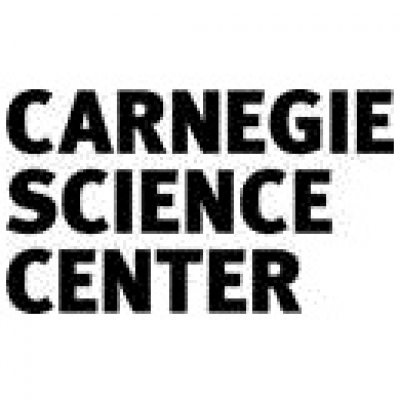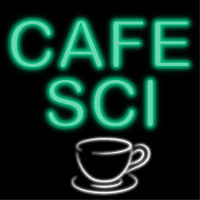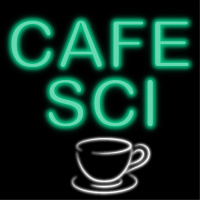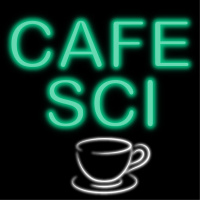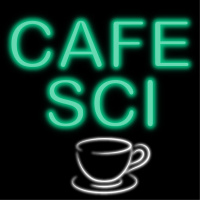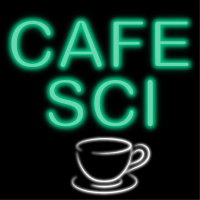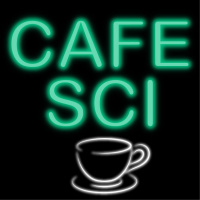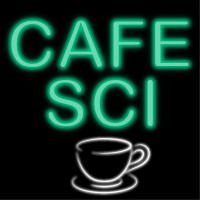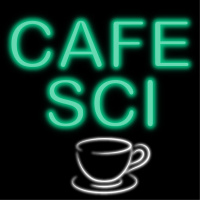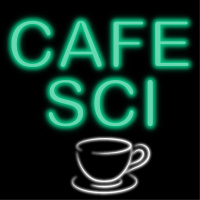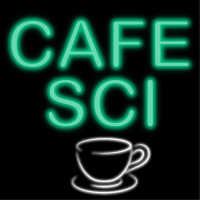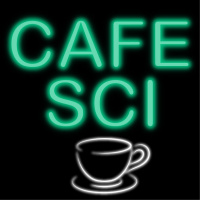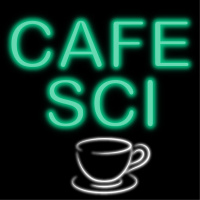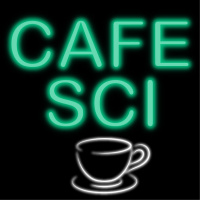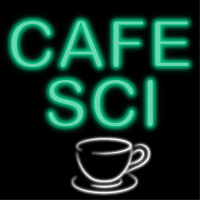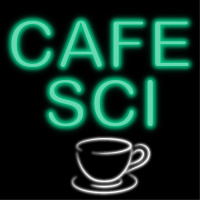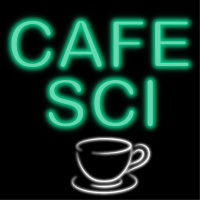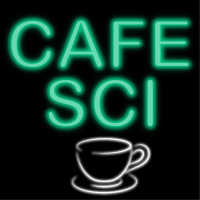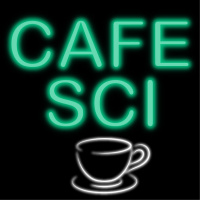Carnegie Science Center Podcast
- Author: Vários
- Narrator: Vários
- Publisher: Podcast
- Duration: 59:51:20
- More information
Informações:
Synopsis
Listen to many of the unique and interesting talks given at Carnegie Science Center.
Episodes
-
Beyond the Looking Glass: Bird-Friendly Windows
02/05/2017 Duration: 01h15minFollow along with the slideshow here. Glass windows are the second greatest human-related cause of mortality to North American birds, accounting for nearly 1 billion deaths annually. In an effort to make the skies safer for our feathered friends, researchers are looking for ways to reduce collisions by making glass more visible to birds. Matt Web, the Urban Bird Conservation Coordinator for the Carnegie Museum of Natural History, will present his talk: Beyond the Looking Glass: Bird-Friendly Windows on Monday, May 1. Web will discuss developing research as to why certain types of glass are more prone to avian collisions, as well as how companies are making bird-friendly glass available. Webb is involved in research at Powdermill Nature Reserve, the Carnegie Museum of Natural History’s field research station located in the Ligonier valley. He and fellow Powdermill avian researchers are using an innovative flight tunnel to safely test bird-friendly glass prototypes to use on new buildings. Webb also s
-
Cafe Sci: Harnessing Electricity from Biofilms to Create Sustainable technologies
15/03/2017 Duration: 01h01minDr. David Sanchez Assistent Professor, University of Pittsburgh Biofilms play a central role in the ecosystem’s ability to sustain life and provide goods and services for economic development. In the biosphere they support key biochemical transformations that clean water, provide fertilizer and allow you to digest your food. What else can they do? Are engineers able to electrically harness the talents of the “best chemists in the world”? Join a discussion with Dr. Sanchez on how engineers are reconceptualizing the role of biofilms in creating innovative sustainable technologies. Dr. Sanchez is an Assistant Professor Department of Civil & Environmental Engineering and the Assistant Director for the Mascaro Center for Sustainable Innovation at the University of Pittsburgh. His research is focused on fusing sustainability principles and design thinking to address our Water and Energy grand challenges for both natural systems and the built environment. Current projects include engineering biofilm-electr
-
Cafe Sci: Is Carbon Capture Realistic?
13/02/2017 Duration: 01h27minIs Carbon Capture Realistic? Christopher Wilmer Assistant Professor, Chemical and Petroleum Engineering Department, University of Pittsburgh Join University of Pittsburgh professor Chris Wilmer for a discussion of the future of carbon capture technology. This very active area of engineering research explores the development of technologies that can be retrofitted onto fossil fuel-based power plants to reduce greenhouse gas emissions into the atmosphere. Retrofitting thousands of coal power plants across the globe would be a massive undertaking, and researchers need to know how feasible such a project would be. In his talk, Wilmer will consider this problem from the molecular scale and ask what the most efficient carbon capture membrane would look like, whether it can realistically help mitigate global warming, and how it compares to existing technologies. Wilmer is an assistant professor in the Chemical and Petroleum Engineering Department at the University of Pittsburgh. His research focuses on the use
-
Science News and Q's Pilot -- Seahorses, Antimatter, and Rivers
26/01/2017 Duration: 21minHello, and welcome to Carnegie Science Center’s newest experiment in podcasting. This is a pilot episode of Science News and Q’s or “SNaQ” for short. It’s a show designed to highlight science current events and answer user submitted science questions. We hope you enjoy this pilot and will share your feedback with us. Thank you and enjoy Science News and Q’s. Science Headlines: Spinning Black holes: http://www.sciencemag.org/news/2016/12/universe-s-brightest-supernova-may-be-something-much-more-exciting-spinning-star-eating Zika Modeling: http://www.sciencemag.org/news/2016/05/yes-zika-will-soon-spread-united-states-it-won-t-be-disaster Seahorse Genes: http://www.nature.com/nature/journal/v540/n7633/full/nature20595.html Universal Rhythm: http://www.nature.com/nature/journal/v540/n7633/full/nature20595.html In-Depth Discussion: CERN Antimatter Spectroscopy: https://home.cern/about/updates/2016/12/alpha-observes-light-spectrum-antimatter-first-time Try It At Home: Buy your own spectroscopy gl
-
Light Up the Sky with Stars
12/12/2016 Duration: 01h32minLight Up the Sky with Stars Presenter: Diane Turnshek Lecturer, Author, & Astronomer How far do you have to travel to see the stars clearly? Join lecturer, author, and astronomer Diane Turnshek as she discusses how light pollution not only prevents us from living under a sky bright with stars, but also negatively impacts human health and the environment. Turnshek will examine how innovative science and technology can reverse this steady creep of sky glow, allowing us to view the same star-filled sky that all past generations did. Diane Turnshek is a lecturer in the Department of Physics at Carnegie Mellon University and the Department of Physics and Astronomy at the University of Pittsburgh. She has published hard science fiction with a focus on space colonization and first contact. Her love of both astronomy and science fiction led her to crew the Mars Desert Research Station near Bryce Canyon, Utah in 2012, where she turned her attention to dark sky advocacy. Her fight against light pollution h
-
The Science of Soccer Strength
18/11/2016 Duration: 01h23minMichael Whiteman Pittsburgh Riverhounds Director of Sports Science The Science of Soccer Strength Join Pittsburgh Riverhounds Director of Sports Science Michael Whiteman as he discusses truths and misconceptions about soccer athletes, and how energy systems develop in elite players. During his talk, Whiteman will discuss the various strengthening and endurance exercises soccer players go through to train their muscles and bodies for sports performance. Whiteman is a Pittsburgh native and holds a certified qualification from the National Academy of Sports Medicine. Whiteman has trained various professional athletes including NFL players Antonio Brown and Terrelle Pryor. He has been the strength and conditioning coach for the Pittsburgh Riverhounds of the USLPro soccer league since 2011. Whiteman also is the Director of Sports Science for the Riverhounds Development Academy. Recorded Monday, November 7, 2016 at Carnegie Science Center in Pittsburgh, PA.
-
In the Blink of an Eye: The Neuroscience of Baseball
07/10/2016 Duration: 01h24minTimothy Verstynen Professor Carnegie Mellon University "Neuroscience of Baseball" In the Blink of an Eye: The Neuroscience of Baseball How does the architecture of the brain allow us to learn complex skills and make fast decisions? What parts of neuroanatomy come into play when a person is trying to stop a 100-mph fastball with a piece of wood? Join Carnegie Mellon University Assistant Professor Timothy Verstynen as he discusses the brain science behind America's favorite pastime. Verstynen is an assistant professor in Psychology at the Center for the Neural Basis of Cognition at Carnegie Mellon University. Recorded Monday, October 3, 2016 at Carnegie Science Center in Pittsburgh, PA.
-
Old Drugs, New Tricks: Putting an End to Traditional Eye Drops
20/09/2016 Duration: 01h05minOld Drugs, New Tricks: Putting an End to Traditional Eye Drops Presenter: Morgan Fedorchak Director Ophthalmic Biomaterials Laboratory Glaucoma is the second leading cause of blindness worldwide, expected to affect up to 3 million Americans by 2020. One of the main risk factors in glaucoma is an unsafe increase in intraocular pressure (IOP). IOP reduction in patients with glaucoma is typically accomplished through the administration of medicated eye drops several times daily, the difficult and frequent nature of which contributes to patient adherence rates estimated to be as low as 30%. Newer drug delivery methods for glaucoma aimed at improving patient adherence require clinician administration of invasive injections or implants. This talk will encompass the rational design and testing of a variety of controlled release systems for delivery of ocular drugs as well as the many significant considerations for translating these technologies to the clinic where they may benefit patients. In particular, d
-
From River to Tap: Examining Local Water Quality
11/08/2016 Duration: 01h02minFrom River to Tap: Examining Local Water Quality Presenter: Gina Cyprych Environmental Compliance Coordinator Pittsburgh Water and Sewer Authority Water: We drink it every day. But have you ever stopped to think about just exactly where your water comes from and how it’s treated? Join Gina Cyprych, Acting Chief Water Quality Officer at the Pittsburgh Water and Sewer Authority, as she discusses how Pittsburgh’s drinking water is captured from the Allegheny River and treated. The Authority must ensure that the highest quality water is reaching each person, but with the many competing regulations a water utility must uphold, how do they maintain simultaneous compliance given a variety of circumstances? Cyprych has worked at the Pittsburgh Water and Sewer Authority for the past 11 years. She received her Bachelor of Science in Environmental Management from Columbia Southern University. Recorded Monday, August 1, 2016 at Carnegie Science Center in Pittsburgh, PA.
-
Spiders: Myths and Facts
05/04/2016 Duration: 01h13minJonathan Pruitt Assistant Professor Department of Ecology, Evolution & Marine Biology University of California - Santa Barbara Spiders: Myths and Facts Follow along with the slideshow here. What’s it like to live in a spider society? Join University of California Santa Barbara Assistant Professor Jonathan Pruitt as he discusses "Spiders: Myths and Facts." Sociality is rare in spiders. Pruitt’s research concerns one species of spider that lives in social groups and how social interactions between the arachnids impacts their behavior and environment. Pruitt’s research explores the ecological consequences of individual variation in behavior for individuals, populations, and communities. Is aggressive behavior rewarded? What mix of docile and aggressive individuals is optimal for a community? Pruitt’s research considers the role of individual differences in patterns of task allocation within societies, and how these patterns impact the long-term performance of groups in different environments. In
-
Bridges: Connecting Researchers, Big Data, and High-Performance Computing
11/03/2016 Duration: 01h41minNick Nystrom Director of Strategic Applications, Pittsburgh Supercomputing Center Bridges: Connecting Researchers, Big Data, and High-Performance Computing Follow along with the slides HERE! Inferring the causes of disease, tracking the survival of the human race, and enabling natural-language searches of video are just a few of the topics being tackled right here in Pittsburgh at the Pittsburgh Supercomputing Center. Join us as we explore how the center uses big data and data analytics to better understand challenging problems. As the center's Director of Strategic Applications, Dr. Nick Nystrom and his team develop hardware and software architectures to enable groundbreaking research, engaging in research and collaborations across diverse disciplines. At Café Sci, Nystrom will discuss researchers' use of PSC's newest resources, including "Bridges." "Bridges" is a data-intensive high-performance computing (HPC) system designed to empower new research communities, bring desktop convenience to HPC, ex
-
If You Can’t See It, It Doesn’t Exist: Connections of Air and Climate Pollution with Policy Decisions
02/02/2016 Duration: 01h24minNeil Donahue Professor of Chemistry & Chemical Engineering Director Center for Atmospheric Particle Studies at Carnegie Mellon University If You Can’t See It, It Doesn’t Exist: Connections of Air and Climate Pollution with Policy Decisions Follow along with the slide show here. The effects of climate change, air pollution, and efforts by leaders to address these effects are pressing issues that pervade recent news-cycles – from climate talks in Paris to the increase in “red alert” days in Beijing. Dr. Neil Donahue will discuss “If You Can’t See It, It Doesn’t Exist: Connections of Air and Climate Pollution with Policy Decisions.” Donahue is a Professor of Chemistry & Chemical Engineering at Carnegie Mellon University; and a Science & Engineering Ambassador with the National Academy of Sciences and National Academy of Engineering. He directs the Steinbrenner Institute for Environmental Education and Research. Climate pollution is mostly invisible and diffuse. More traditional air polluti
-
Expeditions and Species Discovery in the Amazon
09/12/2015 Duration: 58minJose Padial William and Ingrid Rea Assistant Curator of Amphibians and Reptiles Carnegie Museum of Natural History Expeditions and Species Discovery in the Amazon Follow along with the slideshow here. For centuries, the Amazon has captivated naturalists, including a Pittsburgh-based scientist who has lead expeditions to tropical forests and discovered fascinating new species of amphibians and reptiles. Dr. Jose Padial, the William and Ingrid Rea Assistant Curator of Amphibians and Reptiles of the Carnegie Museum of Natural History, will discuss “Expeditions and species discovery in the Amazon”. The Amazon has been a top destination for naturalists attracted by the diversity of life forms occurring in these forests and by the endless possibilities for discovery. Most species of birds, mammals, frogs, fishes, and invertebrates known in the world live in the tropical rainforests of the Amazon. Still, many areas of the Amazon remain poorly explored, and scientists working in these areas are discovering do
-
Rain, Rivers, and Resources: How Watersheds Change Drinking Water
12/11/2015 Duration: 48minJeanne M. VanBriesen Professor of Civil and Environmental Engineering Carnegie Mellon University Rain, Rivers, and Resources: How Watersheds Change Drinking Water Follow along with the slide show here. How do everyday choices impact the water supply? Carnegie Mellon University professor and Carnegie Science Award winner Dr. Jeanne M. VanBriesen will discuss her research in ““Rain, Rivers, and Resources: How Watersheds Change Drinking Water” on Monday, Nov. 9, from 7 – 9 pm, at Carnegie Science Center. Rivers teem with fish and plants, offer a space for recreation, and provide the source of the water we drink. Rain water, on its way to rivers, runs across watersheds. Watersheds are land surfaces that house activities such as mining, farming, producing electricity, and building homes. These activities pose a challenge to maintaining high quality water for ecosystems, recreation, and potable water supply. VanBriesen will talk about engineering systems that manage the quality and quantity of
-
Q&A: Rain, Rivers, and Resources: How Watersheds Change Drinking Water
12/11/2015 Duration: 46minThis is the Q&A portion of the talk. The full talk is available in the previous podcast. Jeanne M. VanBriesen Professor of Civil and Environmental Engineering Carnegie Mellon University Rain, Rivers, and Resources: How Watersheds Change Drinking Water How do everyday choices impact the water supply? Carnegie Mellon University professor and Carnegie Science Award winner Dr. Jeanne M. VanBriesen will discuss her research in ““Rain, Rivers, and Resources: How Watersheds Change Drinking Water” on Monday, Nov. 9, from 7 – 9 pm, at Carnegie Science Center. Rivers teem with fish and plants, offer a space for recreation, and provide the source of the water we drink. Rain water, on its way to rivers, runs across watersheds. Watersheds are land surfaces that house activities such as mining, farming, producing electricity, and building homes. These activities pose a challenge to maintaining high quality water for ecosystems, recreation, and potable water supply. VanBriesen will talk abou
-
Checking the World's Software for Exploitable Bugs
06/10/2015 Duration: 01h19minDavid Brumley President & Director Carnegie Mellon Univeristy’s CyLab Checking the World's Software for Exploitable Bugs Follow along with the slide show here. To Carnegie Mellon University’s David Brumley, hacking is “not something just bad guys do.” Brumley, a professor and director of the CyLab Institute at Carnegie Mellon University will discuss the important science behind hacking at Carnegie Science Center’s next Café Scientifique on Monday, Oct. 5, from 7 – 9 pm. Brumley and his team at Carnegie Mellon’s CyLab (cyber security lab) envision a world in which software is automatically checked for exploitable bugs, giving people the ability to trust their computers. The demand for cybersecurity professionals is growing, and Carnegie Mellon University is working to train students interested in the field. Brumley is an associate professor who focuses on software security, with appointments in the Electrical and Computer Engineering Department and the Computer Science Department. He is the facu
-
CATTfish and Flamingo, a new way to measure water quality from CMU
17/09/2015 Duration: 50minDave Speer President & Co-Founder MellonHead Labs CATTfish and Flamingo, a new way to measure water quality from CMU Why does water quality matter to you? Carnegie Mellon University start-up MellonHead Labs will explain water quality issues and what part can we can play in the water economy. Dave Speer, president and co-founder of MellonHead Labs will speak about: Water quality issues facing Pittsburgh and the nation, how CMU is involved and water and environmental programs, how these programs function and are supported/funded, and the future of water quality monitoring, technology, and IoT (internet of things). CATTfish was created by the CREATE Lab at Carnegie Mellon University. The CATTfish system provides a simple and easy way to track water quality at home. In 2014, a new venture, MellonHead Labs, was formed to bring this innovative environmental sensing product to market. The sensor is used by both citizens and industry to track water quality changes over long periods of time and large geogra
-
"Wily Land Snails of Pennsylvania: Where Do They Live and Which Are Rare?"
17/08/2015 Duration: 01h17minDr. Timothy Pearce Assistant Curator & Head, Section of Mollusks Carnegie Museum of Natural History "Wily Land Snails of Pennsylvania: Where Do They Live and Which Are Rare?" Follow along with the slideshow HERE. A local scientist's work is dramatically increasing what we know about Pennsylvania's 129 land snail species. For the Pennsylvania Land Snail Atlas Project, Dr. Timothy Pearce collected 17,472 records of Pennsylvania land snails from modern field work and museum specimens, documenting thousands of new county records. Many minute species are now known to be widespread, although they previously seemed to be rare. Dr. Pearce, assistant curator and head of the section of mollusks at Carnegie Museum of Natural History, will discuss his work in, "Wily Land Snails of Pennsylvania: Where Do They Live and Which Are Rare?" at Café Scientifique. Dr. Pearce gained an important historical perspective on ecology while working toward a master's degree in snail paleontology at University of California at
-
Learning Science for Better Learning: Carnegie Mellon University's 'Simon Initiative'
18/05/2015 Duration: 01h14minLearning Science for Better Learning: Carnegie Mellon University's "Simon Initiative" Dr. Marsha Lovett Director of the Eberly Center for Teaching Excellence & Educational Innovation Carnegie Mellon University Many students today receive a 19th-century education that is developed without the benefit of contemporary evidence-based research, Carnegie Mellon University's Dr. Marsha Lovett asserts. At Carnegie Science Center's next Café Sci, She'll discuss how a combination of education-based research plus innovations in educational technology can improve students' learning outcomes while further advancing our scientific understanding of how learning works. Carnegie Mellon University's Simon Initiative focuses on leveraging these opportunities and making a difference for local and global learners. The Simon Initiative focuses on the learner and how to improve learning. Dr. Lovett is co-coordinator of The Simon Initiative at Carnegie Mellon University and the director of the Eberly Center for Teachin
-
"What is Quantum Entanglement?" Q&A
14/04/2015 Duration: 40minThis is the Q&A portion of the evening. Dr. David Snoke Department of Physics and Astronomy University of Pittsburgh "What is Quantum Entanglement?" Dr. David Snoke, a local professor, will unpack the concept of "quantum entanglement." The concept is one of those things considered "spooky" about quantum mechanics. It leads to oddities, such as the famous thought experiment "Schrodinger's Cat," which is presumably in a state of being both dead and alive. Dr. Snoke, a professor in the Department of Physics and Astronomy at the University of Pittsburgh, will describe quantum entanglement, using a minimum of math, and will discuss modern experiments which lead to macroscopic entanglement. He'll discuss what these concepts mean (and don't mean) for our view of reality. Dr. David Snoke is the head of an experimental optics laboratory at the University of Pittsburgh, which studies basic effects of quantum mechanics in semiconductor structures, funded by the National Science Foundation. He has more than
